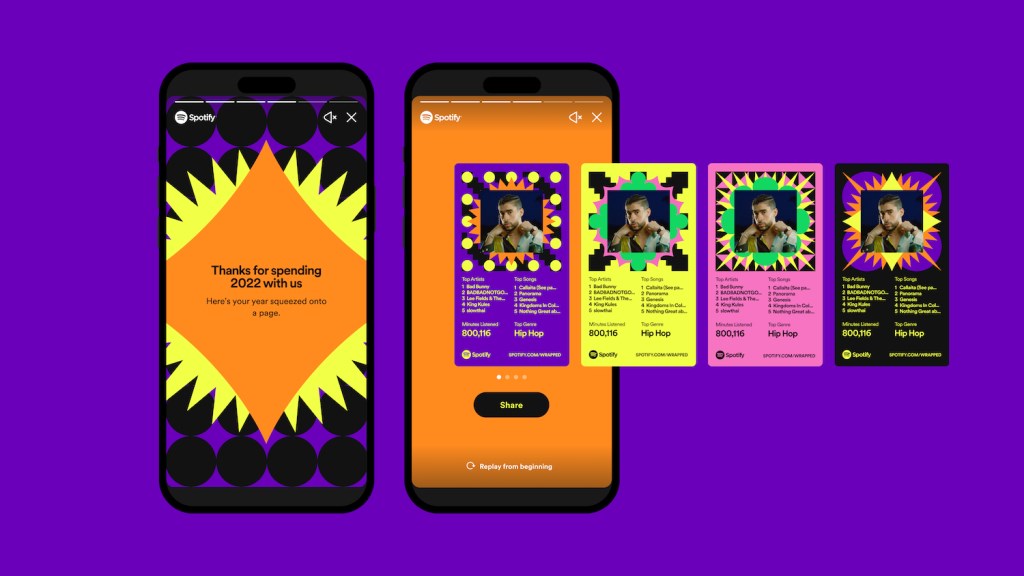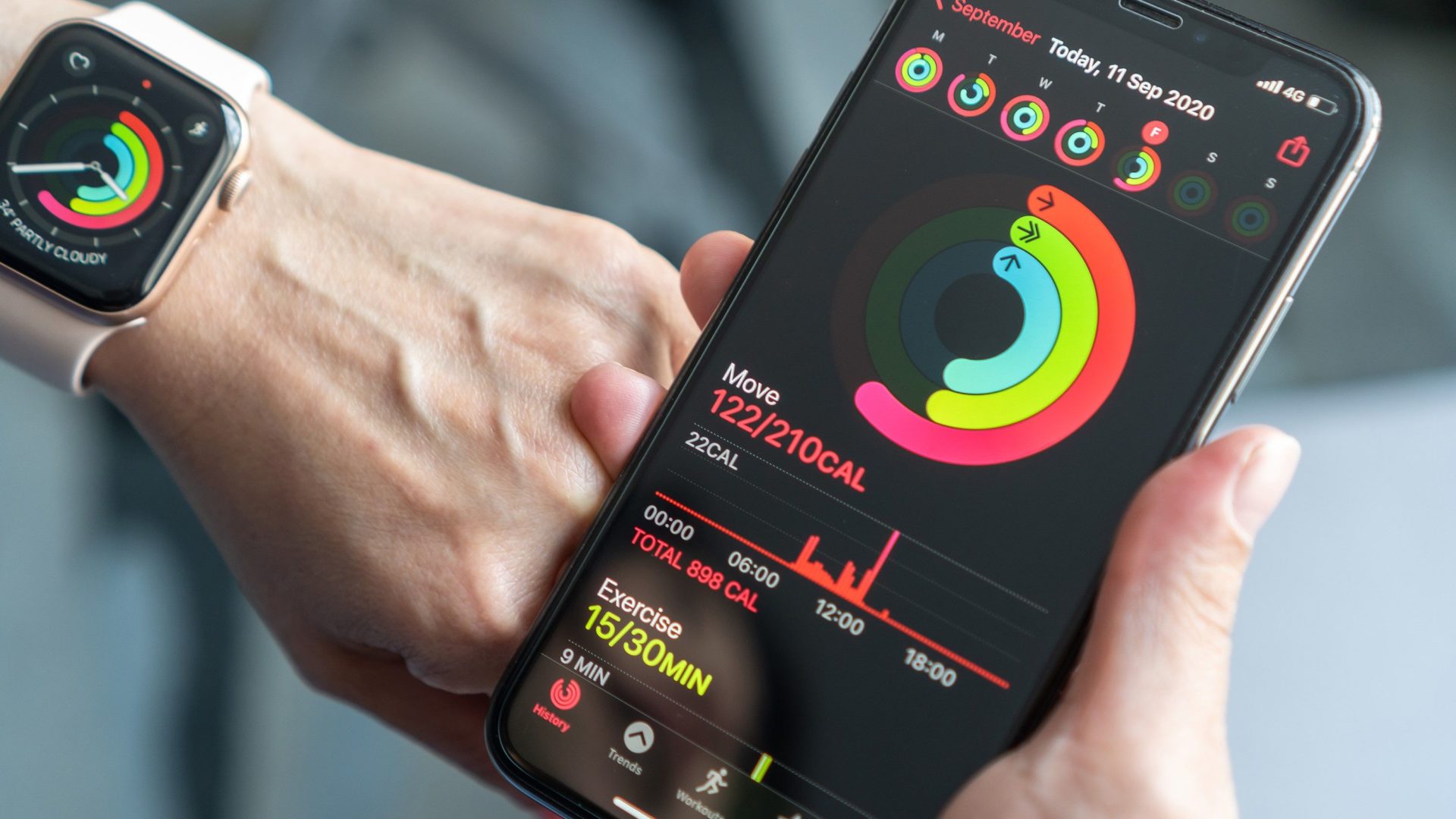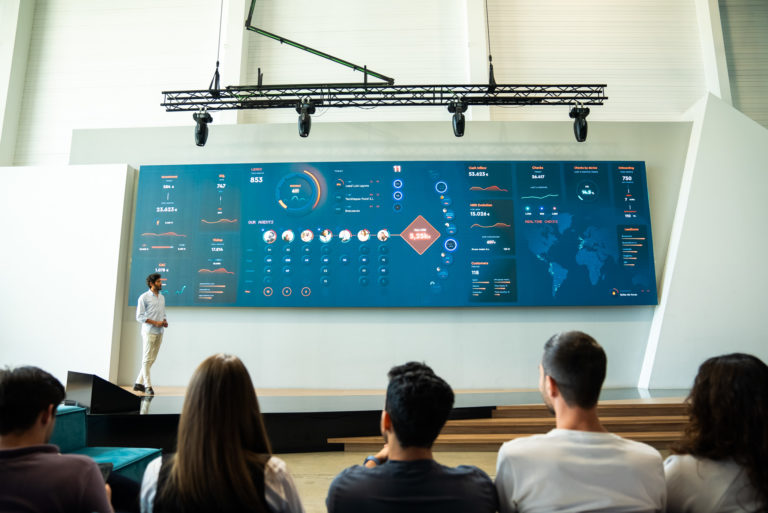Data Storytelling: the magic of telling stories with data

In the age of Big Data, data is the new oil. But what’s the point of all this vast ocean of data if we can’t convey its meaning in a way that resonates with people? This is where Data Storytelling comes in, a powerful combination of data, visualization and storytelling to transform numbers and statistics into memorable and persuasive stories.
What is Data Storytelling?
Data Storytelling is the practice of combining different forms of data visualization-graphs, maps, charts-with narrative elements to tell a coherent and compelling story. This technique not only presents data clearly, but also illuminates its meaning, contextualizes the information, and captures the audience’s attention.
The Data Storytelling formula
The impact of a good data-driven story depends on the combination of three essential elements: data, narrative and visualization. Let’s break it down:
Visualization + Data
This combination helps make the information clear, coherent and entertaining. Graphs and maps transform abstract numbers into understandable images, illuminating the meaning behind the data.
Narrative + Data
Narrative puts the audience in context, making it easier to understand the data. Telling a story around the data makes the data more understandable and relevant.
Visualization + Narrative
This duo adds visual interest and keeps the audience engaged. A good data visualization accompanied by a strong narrative can capture and hold the attention of customers.
Visualization + Narrative + Data
The combination of all elements is powerful. This trinity not only facilitates understanding and memorization of information, but can also influence the audience and bring about behavioral change.

Create an impactful Data Storytelling
To build an effective Data Storytelling, it is crucial to select the most relevant data and present it in an attractive and easy-to-remember way. Here are some essential steps:
- Content: What story do you want to tell? Define the core message.
- Aim: Why are you telling this story? What is the purpose?
- Structure: How will you present the data and how does it relate to your narrative?
- Format: How will your customers receive and understand it?
Examples of Data Storytelling
Here are some inspiring examples of companies that have applied it:
1. Spotify Wrapped
One of the most popular examples of Data Storytelling is Spotify’s “Wrapped” campaign. This campaign uses user data to create music consumption patterns in a fun and personalized way. How many hours of music did you listen to? Who was your most listened to artist? These questions are answered with engaging visualizations and personalized narratives that not only inform but also entertain.

2. Netflix and its documentaries
Productions like Netflix’s “Death by 2020” and “Death by 2021” are shining examples of how data can tell a story. These mockumentaries use statistics, graphs and news clips to provide a historically accurate summary of the year’s events. The humorous and visually rich narrative keeps viewers engaged while providing meaningful information.
3. Movistar Awareness Campaign
Movistar’s “Love Story” campaign is another powerful example. This short film addresses the issue of cyberbullying using emotional storytelling and hard-hitting data. The characters’ story captures attention and the data presented at the end reinforces the campaign’s message, raising awareness and promoting responsible use of technology.
4. WHO visual reports
The World Health Organization (WHO) uses Data to communicate public health statistics. Its interactive visual reports allow anyone to understand complex global health data in a simple way. Interactive graphics make it easy to explore and understand health data, making the information accessible and useful.
5. Apple and health monitoring
Apple devices, such as the Apple Watch, are practical examples. These devices record physical activity and health data, presenting it to users in a graphical and understandable way. This not only helps users monitor their health; it also demonstrates the value of Apple products through compelling data storytelling.

Keys to effective Data Storytelling
Data Storytelling is a powerful tool for transforming raw data into meaningful and memorable stories. Whether in a marketing campaign, a public health report or a business presentation, the combination of data, visualization and storytelling can capture the audience’s attention, facilitate understanding and bring about change.
As Brent Dykes, former Director of Data Strategy at Domo, said, “People listen to statistics, but they feel the stories.” Harness the power of Data Storytelling to connect with your audience and communicate your ideas effectively and persuasively.



